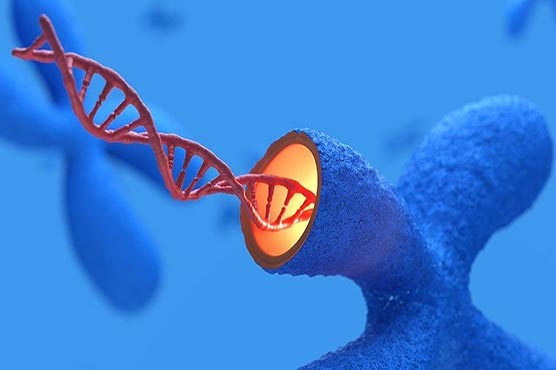Scientists perform DNA experiment on mice to increase lifespan

Their mitochondria functioned better as well.
(Web Desk) – Scientists are experimenting all kinds of ideas to extend lifespan and give us a few extra years of existence, and now a mouse study has produced some intriguing results: a longer life thanks to hyper-long telomeres.
Telomeres are repeated sequences of DNA material sitting at the tips of each and every chromosome in our body’s cells.
When DNA replicates - for example, during cell division - those telomeres get shorter each time, since replication doesn’t reach the very tip of the chromosome.
Their existence acts a sort of buffer, protecting the genetic material within our chromosomes, and shorter telomeres indicate that cells are wearing out. In fact, as we age, telomeres get shorter and shorter. Many longevity studies have been based around trying to keep these telomeres strong and healthy for as long as possible.
Until now, those studies have involved trying to alter gene expression, but this new research doesn’t rely on any kind of gene modification. The work builds on past research, where biologists discovered that when induced pluripotent stem cells are left to divide in a petri dish, they end up with extra-long telomeres - twice as long as normal.
The same telomere lengthening happened to embryonic stem cells cultivated in this way. So, the researchers in the new study used embryonic cells with these doubly long telomeres and bred chimeric mice without genetically modifying them at all.
"This finding supports the idea that, when it comes to determining longevity, genes are not the only thing to consider," says molecular biologist Maria Blasco, from the Spanish National Cancer Research Centre (CNIO). "There is margin for extending life without altering the genes."
The experiment worked: the long telomere mice lived an average of 24 percent longer, were slimmer, and less likely to develop cancer. Various indicators of metabolic ageing turned out to be lower too, the researchers report.
These mice had less ‘bad’ cholesterol in their bodies, and their DNA wasn’t damaged as much as the animals got older.
What’s more, their mitochondria functioned better as well.
This matches up with previous research done by the same team, where the activation of the telomere-lengthening enzyme telomerase was enough to extend longevity in mice.
Of course, it’s important to remember that this is only a relatively small study on mice, and doesn’t mean we’ll be producing humans with super-long lifespans any time soon.
But the exciting results of this research do show a strong link between telomere length and lifespan in animals, and may open up new ways of being able to take advantage of this connection.
In a world where almost everything seems to make our cells age faster, it would make a refreshing change to find a way of putting the brakes on.
"Together, these findings demonstrate that longer telomeres than normal show beneficial effects in mice, delaying metabolic ageing and cancer, and resulting in longer lifespans," conclude the researchers in their published paper.
The research has been published in Nature Communications.

